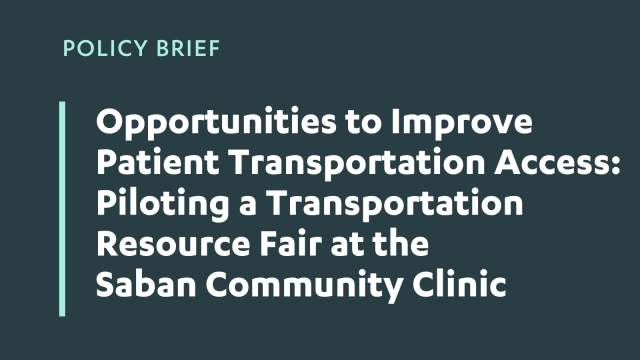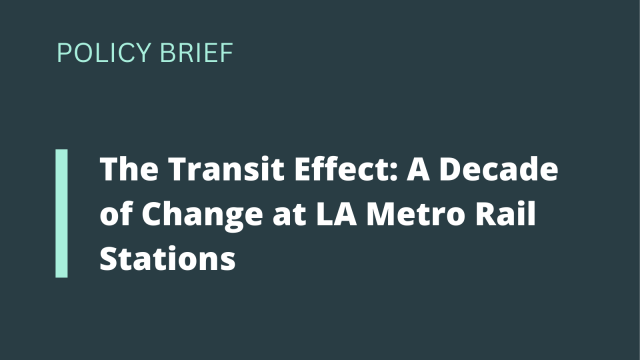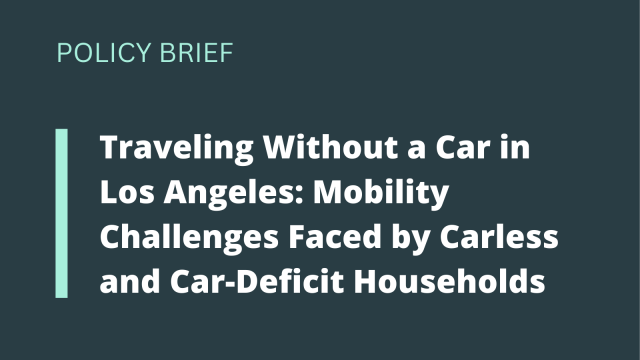Lost Hours, Lost Opportunities The Toll of Extreme Travel on Lower Income Communities in the San Fernando Valley
Extreme commuting is increasing worldwide, especially in urban areas, driven by factors like limited affordable housing and job opportunities. In Los Angeles, individuals, particularly those in lower-income jobs, often face long commutes due to affordable housing constraints and proximity to job centers. Extreme commutes refer to spending 180 minutes or more traveling to and from work. This report expands on this concept to define ‘extreme travel,’ which aims to include travel to all destinations.
This report examines how extreme travel affects economic, social, environmental, and health outcomes for lower-income people living, working, or studying in the San Fernando Valley (SFV) through a collaborative effort with Pacoima Beautiful (PB). PB is an environmental justice community-based organization primarily serving Northeast San Fernando Valley Latinx communities. The report investigates the causes of extreme travel, the impacts on socioeconomic, health, and environmental outcomes, and transportation challenges associated with extreme travel using a qualitative research approach. The data collected includes fourteen semi-structured interviews and 93 survey responses. The interviews allowed for in-depth conversations and documentation of first-hand experiences, while the survey provided data to compare experiences between people experiencing extreme travel and people who do not. Findings reveal that people who experience extreme travel face barriers to accessing transportation services, affordable housing near job centers, and quality jobs closer to home. Moreover, people with extreme travel feel it negatively impacts their social, economic, health, and environmental outcomes. The findings can inform policy and planning efforts, particularly in anticipation of the East San Fernando Valley Light Rail Transit Project, and contribute to environmental justice and transportation equity discourse.



